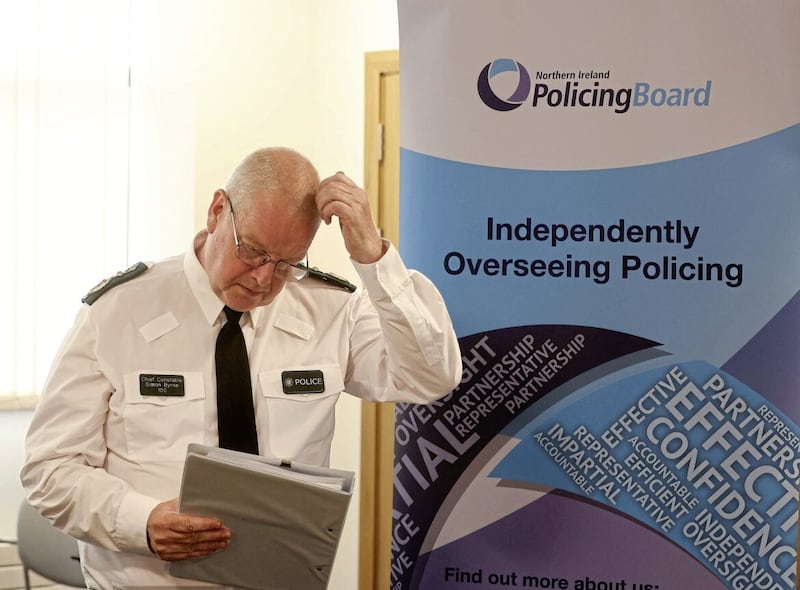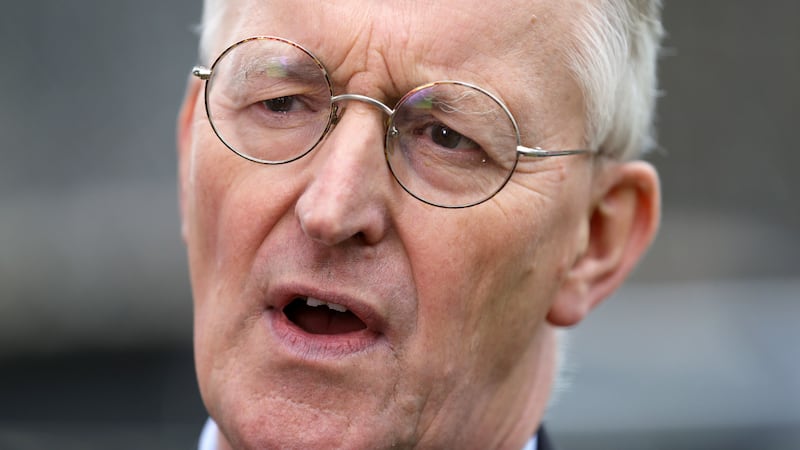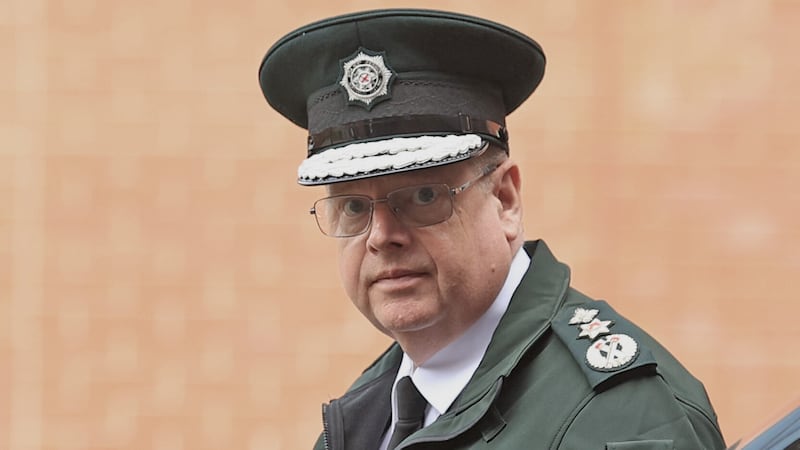So farewell then to chief constable Simon Byrne, whose resignation leaves many problems and unanswered questions.
The Policing Board has been as badly damaged as the PSNI, having messed up Byrne’s tenure from start to finish.
The board may be experiencing a form of regulatory capture, where public bodies begin to empathise with those they are meant to scrutinise. This requires no conspiracy: it is an almost inevitable drift, due to shared interests and experience.
The same thing happened to the board’s predecessor, the Police Authority, set up in 1970 with a similar structure and purpose. It raises the possibility, particularly relevant to Northern Ireland, that oversight bodies have a natural lifespan and should be shut down every two or three decades and replaced from scratch.
Read more:
Policing Board will have to answer questions about PSNI controversies – Hoare
Selection process for new PSNI chief constable to complete in November
**

The Belfast Telegraph has reported a claim that Simon Byrne received calls over the Sean Graham memorial incident not only from Sinn Féin but from the Irish government and the Northern Ireland Office, neither of which are meant to have any say in operational policing.
Perhaps it is not the end of the world that people feel free to call the chief constable but they should always be told when their call is inappropriate.
Byrne clearly knew how to shut down a conversation: after announcing he might appeal the ruling on the memorial incident, he said he could not comment further due to possible legal action.
**
Most coverage of the Troubles amnesty bill, which has passed its final Westminster hurdle, claims it has no support in Northern Ireland. This is incorrect and not just because Sinn Féin is only pretending to oppose it.
A 2021 LucidTalk poll found the original bill, which created a blanket amnesty, had 23 per cent public support, including 10 per cent of nationalists and a third of unionists.
The bill was toned down in May last year to a conditional amnesty. The following month a Liverpool University survey asked about this model, although not specifically about the bill. It found 45 per cent public support, with 18 per cent opposition. There was majority support among Sinn Féin and SDLP voters.
The decisive opposition is from Labour, which has vowed to repeal the legislation. As the amnesty only comes into effect next May the whole exercise could end up being academic.
**
The amnesty’s mechanisms will be run by Sir Declan Morgan, the former lord chief justice. He has made some unexpected comments about effectively recreating Troubles inquiries and inquests prevented by the legislation, by summoning lawyers and witnesses to his new investigations commission.
The commission can compel full disclosure from public authorities and order any person to attend and provide information, documents and evidence. However, all it can do to any individual who refuses to cooperate is to fine them £5,000.
For some, this may seem like a small price to pay. Failing to attend an inquest or inquiry is usually contempt of court, punishable by up to two years in prison or an unlimited fine. This has not been a theoretical risk – the Bloody Sunday Inquiry jailed a republican for three months and tried to do the same to a journalist and a former soldier.
**

Labour MP Hillary Benn, son of legendary leftist Tony Benn, has become shadow secretary of state for Northern Ireland and will presumably be secretary of state next year. He revealed much of the attitude he will bring to the job during a Commons debate in March to mark the 25th anniversary of the Good Friday Agreement.
Benn’s attendance alone was notable as few MPs from Britain turned up. In a lengthy speech, he singled out “the sheer brilliance of the decommissioning process” for achieving the apparently impossible by using independent outsiders. His view on the Troubles was that it must be seen in the context of “800 bloody years”.
He also made a point of adding Margaret Thatcher and Garret Fitzgerald to the list of those being thanked for the peace process, perhaps not something his late father would have done.
**
Colum Eastwood’s Ouija board is broken. The SDLP leader says if the DUP keeps blocking devolution, “the spirit of the Agreement” requires power-sharing to take place through enhanced British-Irish cooperation.
“[The DUP] need to understand that power-sharing will endure, whether they like it or not and whether they take part or not,” he said.
This conjures up a spirit that directly contradicts the letter of the Agreement in multiple places. The way to make the DUP understand power-sharing will endure without them is to reform Stormont’s vetoes, as the Agreement clearly anticipates with its requirement for regular reviews.
**
A Newtownards DUP councillor has been ridiculed for opposing an Alliance motion for votes at 16. Naomi Armstrong-Cotter said proponents are hoping to “exploit youthful idealism”, prompting many to ask why that would be wrong.
In reality, unionists oppose the idea for the same reason Alliance and nationalists support it: they all think young voters would be more left wing and liberal. Yet this is far from certain.
Scotland extended voting to 16 and 17-year-olds for the 2014 independence referendum and for council and Holyrood elections from 2016.
Research by YouGov indicates their voting patterns most closely match those of people in their 40s and 50s – in other words, their parents.







